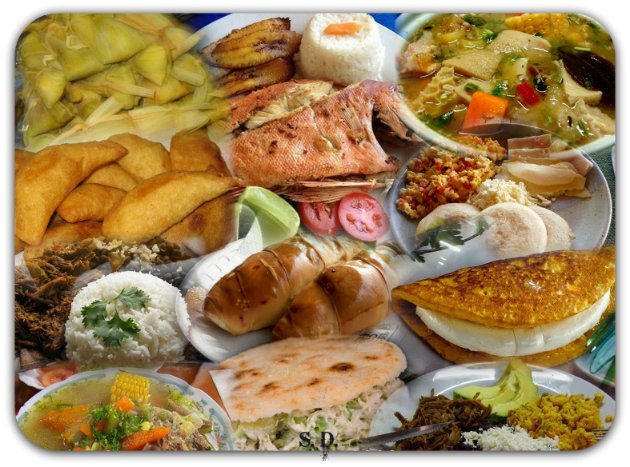I can be a generalist when I say that the majority of Venezuelans are sad and distressed, I know...
I see general suffering that is caused by different reasons and I want to share what I perceive with you
here we go...
In my case, the heart is torn by the separations of different families, but more than that, the emigration of young Venezuelans to other countries to try to have a life more or less normal. To start from scratch and look for some opportunity that the outside world gives you, an opportunity that unfortunately could not have lived in our country.
It hurts. It makes me angry. It makes me unworthy. And maybe it scares me. But there is only one thing left to learn and it is to, be strong, patient and tolerant.
In the last two years I have had to say goodbye to different relatives, brothers, uncles, cousins ... I want to confess that this has left a huge gap in my soul that does not let you think only about the fact and reality that you are living in that moment , that moment of anger and sadness at the same time you ask yourself a thousand times, why? Why your country? After hours of crying you clear your mind and it only remains to say DO NOT DROP yourself.
In fact after my brother spent a year outside of Venezuela we have been talking and wow! surprise said he had found Venezuelan friends who had not emigrated have fled Venezuela.
I want to emphasize the difference between fleeing and emigrating. It is not academic, but it helps me to try to understand the phenomenon that we are living. That subtlety we discovered in Medellin during the 2016 Gabo Festival, when one of the panelists, a young journalist from El Faro, an expert on the source "migrations" clarified that in his country and part of Central America many people did not emigrate, fled from their life conditions.
And that is what I have noticed in the last wave of Venezuelans looking for directions.
From being air rafters, as we were baptized years ago because of the migration of members of the middle and professional classes who were traveling by plane to their new destination, today the Venezuelans leave by land and sea. They travel southward on dangerous routes to Chile and Argentina, cross the border of Roraima to Brazil, walk towards the strip that separates us from Colombia, enter the rivers towards Guyana and take "peñeros" and throw themselves into the sea to anchor in Curacao.
So far we have noticed that not only those who can or have some economic resources to facilitate it, anyone who seeks the minimum to leave Venezuela does so.
When leaving Venezuela they only look for a place where they can live as it is, despair is fear.
The stories of the Venezuelan Diaspora are multiplying. Good stories and bad stories. But deep down, the country is running out of a generation. Each exit is a mixture of feelings and emotions, for those who leave and for whom we remain.
"The Venezuelans of this time have a great challenge, to think of the country putting us above the disaster that is today, not only to deploy all the reconstruction effort required by the current deteriorating reality, but also to dream of the country that could to become, given the size of its natural resources, and above all, the potentiality of those who remain in the country and those who have had to leave, in search of better conditions of existence." José María Cadenas.
And it is obvious that nothing ensures that the Venezuelan situation will improve either immediately or in the medium term.
With the e-banking crisis, last year, and with the response given by the President of the Republic, Nicolás Maduro, who warned that he was willing to take a tough, but "necessary" measure, I have no doubt that the Government does not want to finish understanding what happens in the country.
What I see is a tremendous deterioration and options that can prolong the permanence of the Government, but in exchange for the unhappiness of the majority. However, I also perceive that there are still tools in the collective soul of Venezuelan society to deal with this tremendous suffering.
That is why I conclude these lines with a message that Chema Cardenas gave us, paraphrasing Vaclav Havel: We will never build a better Venezuela without having dreamed of a better Venezuela. 